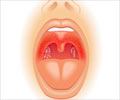A study on mice suggests that paediatric obsessive-compulsive disorder may develop from an inappropriate immune response to the bacteria causing throat infections.
A study on mice suggests that paediatric obsessive-compulsive disorder (OCD), Tourette syndrome and/or tic disorder may develop from an inappropriate immune response to the bacteria causing common throat infections.
Researchers at Columbia University Mailman School of Public Health's Center for Infection and Immunity say that their findings support the view that this condition is a distinct disorder, and represent a key advance in tracing the path leading from an ordinary infection in childhood to the surfacing of a psychiatric syndrome.They say that their study provides new insights into identifying children at risk for autoimmune brain disorders, and suggests potential avenues for treatment.
According to them, their study supports the hypothesis that some neuropsychiatric syndromes may be triggered by direct action of antibodies assocaiated with Strep throat bacteria, scientifically known as Group A beta-hemolytic streptoccoccus (GABHS), on the brain.
Whether environmental factors other than GABHS can lead to similar effects is as yet unknown, say the researchers.
Using a mouse model of PANDAS, a team led by Dr. Mady Hornig, associate professor of epidemiology at Columbia University Mailman School of Public Health, have demonstrated this suspected link between GABHS antibodies and the psychiatric symptoms of the disorder.
The researchers immunizing mice with an inactivated form of the bacteria, and found that the animals exhibited repetitive behaviours reminiscent of children with PANDAS.
Advertisement
"These findings illustrate that antibodies alone are sufficient to trigger this behavioral syndrome. Our findings in this animal model support and may explain results of Swedo and colleagues in treating children with PANDAS using plasmapheresis or intravenous immunoglobulin (IVIg). They may also have implications for understanding, preventing or treating other disorders potentially linked to autoimmunity, including autism spectrum, mood, attentional, learning, and eating disorders," Nature magazine quoted Dr. Hornig, as saying.
Source-ANI
SRM












